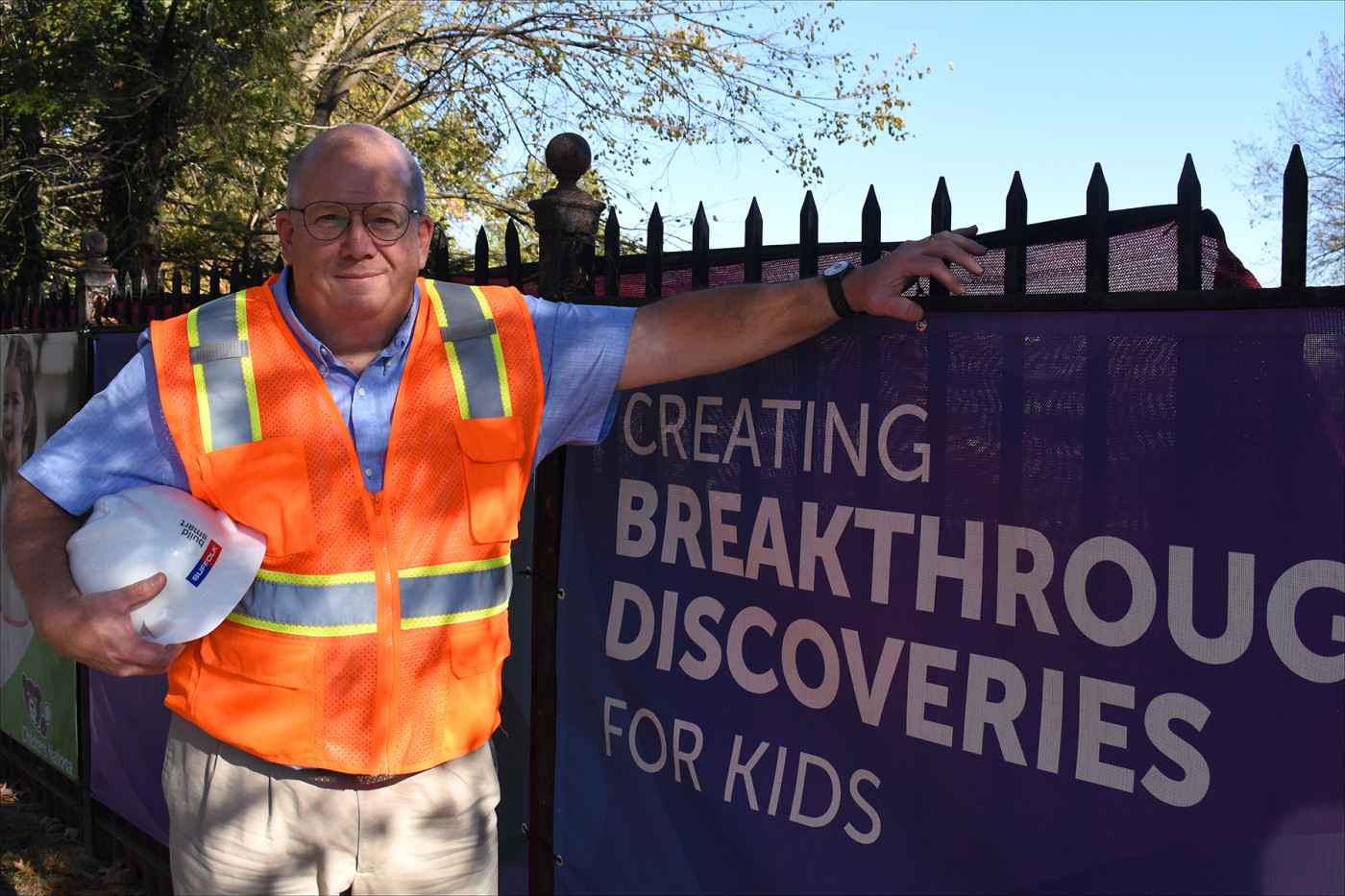NORD’s Advice on COVID-19: You’re Stronger Than You Think

First, the bad news: If you’re one of the 30 million or so Americans with a rare disease, you probably have lower immunity to the novel coronavirus than most people.
Now, the good news: You already know how to face loneliness and adversity — qualities that make you far stronger and better equipped to handle the nation’s worst pandemic in more than 100 years.
That’s the main message to emerge from an hour-long webinar on COVID-19 that was organized by the nonprofit National Organization for Rare Diseases (NORD), an umbrella coalition of some 280 rare disease patient advocacy groups.
“Most rare diseases already come with a risk greater than everyday life and COVID-19. These are things we’re used to dealing with,” said Marshall Summar, MD, director of the Rare Disease Institute at Children’s National Hospital in Washington, D.C. “Our patients are some of the most resilient people on the planet. While there are things for us to learn, we also have things to teach everyone else, and we can help make changes that benefit our community and countless others.”
Along with Summar, the March 31 webinar featured Bernhard Wiedermann, MD, an infectious diseases expert at Children’s National and pediatrics professor at the George Washington University School of Medicine. Also featured was Albert Freedman, PhD, a Philadelphia psychologist whose son, Jack, has spinal muscular atrophy (SMA).
“Many of us remember the day our lives were flipped upside-down with the diagnosis of a rare disease,” said Freedman, speaking from his home just outside Philadelphia. “We also, unfortunately, have experience with isolation — which may be helpful right now. Some of us are fragile and have always needed to be careful. We have more practice than most people for a situation like this.”
Added Katie Kowalski, NORD’s senior manager and moderator of the webinar: “We are working hard to provide medically accurate facts and will be here for you throughout this pandemic. Our team is extremely active at this time. Our patient services department is providing direct support, and our membership team is sharing resources with advocacy groups across the nation.”
Hints for rare-disease patients
Summar, whose Rare Disease Institute sees more than 8,000 patients a year, said older patients with underlying medical conditions are at greater risk for contracting COVID-19, the disease caused by this particular coronavirus.
Particularly vulnerable, he said, are those with respiratory illnesses such as cystic fibrosis or pulmonary hypertension, as well as patients on immunosuppressants or those who have undergone lung, liver or kidney transplants.
“What we’re recommending is that you maintain your regular pattern. If you get infusions at the hospital, continue doing that, and if it’s at home, continue that too,” he said. “These things can take a lot of setup, and changing in midstream is not easy. COVID-19 is not going to outweigh the risk of missing your regular infusion.”
Summar added that “you’re probably in more danger by not treating your disease properly than you are from COVID-19, even if you contract it.” He said patients who absolutely must go to the hospital should go, particularly if not going might compromise their health.
“While there’s a lot of scary stuff going on right now, we still have to live our daily lives,” said Summar, who also is chairman of NORD’s board of directors. “Patients still need to do their treatments and have medical issues to deal with.”
With that in mind, Summar offered these practical suggestions:
- Obey public announcements about social distancing, staying away from others, and self-quarantine.
- Make sure you have refills of all necessary medicines and formulas. “Unlike toilet paper, this can stave off disaster,” he said.
- Check to see if your regular hospital has diverted non-COVID-19 patients elsewhere. Find out who at that facility you might need, and how to connect them to your regular care team.
- Make sure all treatment letters are updated.
“Don’t panic, and don’t let fear drive you to the emergency room. You’ve dealt with things like this more than almost anyone you know,” Summar advised. “But if you absolutely have to go to the hospital, plan ahead. Make sure you’ve got phones, tablets, portables and plenty of chargers to go with them. Have a kit ready to take to the hospital, as well as a supply of your medications. If the facility isn’t used to you, they may not have the meds you need.”
On the other hand, he cautioned that ERs are currently overloaded, and that “telemedicine can be your friend” — especially for procedures that can be done remotely.
“Regulations like cross-state licensure are being eased during this crisis,” he said. “If your expert is elsewhere, he or she can see you in your home from almost all states.”
‘Unprecedented’ world pandemic
Wiedermann compared the current pandemic to SARS (severe acute respiratory syndrome), which lasted six months, from late 2002 to early 2003, and disappeared without any treatments or vaccines. Much later came MERS (Middle East respiratory syndrome), which was first reported in Saudi Arabia in 2012 and is still present in several countries, including the United States.
“Although this current outbreak is unprecedented in many respects, it made me recall my first outbreak, which was in 1981,” he said. “I was still in training but I was called to help on an investigation of an outbreak of very severe meningitis. When you’re armed with knowledge about what to expect, that can mitigate in many respects the fears we all feel.”
Thankfully, Wiedermann said, is that so far, this current coronavirus does not appear to be mutating much — even though the United Nations says the COVID-19 pandemic is the biggest global crisis since World War II. As of April 2, nearly 1 million people worldwide have been infected, and more than 50,000 have died.
“Were hoping it will behave like other respiratory viruses. Lots of trials are ongoing, but there are also lots of articles in the lay press that’s causing panic buying,” Wiedermann warned. “A vaccine will take a long time. After we begin full-phase testing, we’ll have to wait to see if the vaccine produces antibodies, and that takes a few weeks. How long will the antibodies last? That could be another few months. I’m hopeful that a year from now, something will be available.”
In the meantime, he suggested, “if you need to go grocery shopping, some businesses have made special accommodations for high-risk individuals. Also, touch only what you intend to buy, and avoid touching your face.”
Exercise also is very important — especially at a time like this, Wiedermann suggested.
“Getting out of the house, as long as you maintain distance from other individuals, and walking around the neighborhood is fine,” he said. “Avoid public parks and playgrounds, and don’t go out if you’re sick.”
Mental health also important
Finally, says Freedman, don’t neglect your mental health.
“Abrupt change triggers uncomfortable feelings. Because of this pandemic, our sense of safety is threatened. It’s normal to experience a range of strong emotions, such as disbelief or denial. People feel they’re not in control.”
For this reason, Freedman advises rare-disease patients to focus on what is in their control.
“Get enough sleep, maintain healthy eating patterns, allow sunlight and fresh air into your living spaces, and spend time outdoors. Exercise as much as you’re able to, indoors or outdoors,” said the psychologist. “I am really not fond of the phrase ‘social distancing.’ Actually it’s important to stay in close contact with friends and family. I would encourage us all to use technology to stay connected, through video chatting. How we make use of our time is also in our control.”
Other useful tips, according to Freedman:
- Limit your exposure to the news. “Too much news triggers fear and anxiety. Keep it to a minimum, and I would recommend avoiding news at night, just before bedtime.”
- Read a good book, enjoy movies and spend time with your family.
- Try to maintain a routine, and be consistent about it.
- Get involved with online support groups, if possible, as actual get-togethers have largely been cancelled.
“In-person support groups are being replaced by online support groups, and new ones are popping up every day,” he said. “Check with the national rare-disease organization you’re connected with to look for online groups. Also check Facebook and other social media. Many people are initiating contact via Zoom videoconferencing technology to start their own informal groups.”
In short, Freedman said, stay positive and don’t focus on the gloom and doom.
“We are experts at facing challenges and adversity,” he said. “We are resourceful, resilient and adaptive. All of this will help us as we move through this difficult period.”










